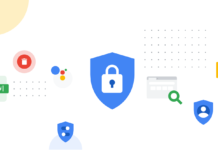When you’re trying to keep your small business running smoothly and turning a profit, there can be so much to take into consideration. There will be a lot of analysis and risk assessment to ensure you’re doing all you can to achieve the best results. But with plenty to think about already, many small business owners neglect one vital thing – their cybersecurity. If you want to protect your online data and ensure hackers aren’t able to access your sensitive information, you need to get a strong security system in place as soon as possible.
Unfortunately, it is a fact that cybercrime is on the rise. But the good news is, as security measures are becoming increasingly important, there is always new software being invented and security providers coming forward to offer protection for your business. To help you decide if you’re on the right track, we’ve put together a list of six common cybersecurity pitfalls you need to avoid ensuring you’re taking all the right steps to keep your small business safe.
1. Thinking you’re too small to be targeted
One of the biggest downfalls of small businesses is that they don’t believe they’ll be a target. After all, hackers would be more inclined to target bigger companies with more revenue and data, right? But the reality is that almost two-thirds of small businesses were targeted by cybercriminals last year. This is why cybersecurity is so important for all businesses, no matter what their size. So, don’t be fooled into thinking that it won’t happen to you, instead get strong systems in place to ensure you keep your business safe.
2. Not educating the whole team
Another area that many business owners overlook is the fact that their whole team needs to be educated on the importance of cybersecurity. You might not think that the part-time HR assistant or the marketing copywriter needs to know about security, after all, it’s not their job to address a breach, but it pays to teach all staff to be able to spot the signs of a breach or potential threat. For example, we’re all familiar with spam emails, dodgy downloads or fake third-party providers sending threatening emails. If you’re not clued up cybersecurity, you’d be forgiven for taking these seriously or replying to a spam email.
As such, it is the best practise to ensure your whole team has at least a basic understanding of cybersecurity and what they need to be looking out for. This also means they’ll know who to report to should they spot something suspicious or out of the ordinary. As they say, prevention is better thana cure, and having a well-educated team gives you a better chance of addressing a threat before any hackers can get into your systems.
3. Using free cloud-based systems
It’s understandable that in the early stages of your business you want to cut costs and use free systems where possible. Free cloud-based applications such as Gmail or Yahoo for example. And while there are a handful of great, free applications out there, often these are not as secure as the systems that you pay for. So, as your business grows and you begin to generate more revenue and store more sensitive data, it can be a good idea to invest in more secure cloud-based systems. Especially if you use these to share confidential documents or to communicate with customers, vendors, and employees on a daily basis.
4. Falling behind on security best practices
When your business first stared you might have installed the latest and greatest security software, but have you updated it since then? Technology evolves quickly and cybercriminals are always finding new and creative ways to access confidential data. So, you need to make sure you’re updating your systems and software whenever possible. It’s a good idea to set an annual or even a bi-annual, review date to check up on your systems and see if you could be doing more. As your business grows you might be able to hire a full-time employee to keep an eye on this year-round. Either way, it pays to stay up to date with your systems and practices.
5. Not governing your devices properly
Any work device, whether a computer, laptop, tablet, phone or hard drive, needs to be password protected. Allowing yourself and your team to work outside the office is great, but you need to ensure you’re governing all work-related devices properly. Passwords and even two-step authentication codes are a good place to start. It’s also a good idea to set a clear boundary between work and personal devices. Too much crossover creates room for human error and also means these devices could end up being used by unauthorised persons, even if it is only your employee’s family members. Set clear boundaries and rules for how work devices should be used and ensure that everything is password protected.
6. Connecting to public Wi-Fi
Finally, as the world increasingly operates online, more and more businesses are offering free Wi-Fi services. You can get internet access on the train, in restaurants, in hotels, bars and some cities even offer a free city-wide connection. While this is great if you like to work on the move, during your commute or on your lunch break, it has also created a platform for hackers to access your information. Because public Wi-Fi is open to anyone, cybercriminals employ tactics such as ‘man in the middle’ interceptors to be able to access your data. They can also create their own hotspots giving them deceiving names such as ‘free city centre Wi-Fi’, tricking innocent users into logging on. The best way to protect your business is to ensure that you and your staff never connect a work device to public Wi-Fi unless you’re doing so through a Virtual Private Network (VPN). This is another reason you need to educate your team about how to keep their devices safe.








